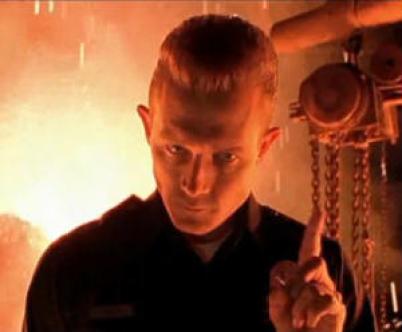When you are a near quadriplegic, personal support workers and caregivers act as your arms and legs. They are essential to your health and well-being. There are so many things that they do. Most caregivers are sensitive and conscientious. The majority are women. Some are polite, friendly and entertaining. Some should find a different occupation. This is the first in a series of notes describing the good, bad and entertaining situations with specific caregivers.

After two years with ALS, getting dressed started to become difficult. My hands were weak. It was hard for me to reach and pull up my pants. Through consultation with my ALS Canada regional manager and my CCAC case manager I was allocated support to assist me with the tasks for getting up and going to bed. At first, with my lack of humility and my desire to be independent, it was difficult to accept help. Eventually it was mandatory. I could not dress myself.
The Pilot

The first PSW that helped me in the morning, let’s call him The Pilot, was a solidly built gentleman in his late 40s. He had an Italian Canadian background. I’m Irish Canadian. The neighborhood I grew up in was predominantly Irish and Italian descent. Good Catholics. The odd time when I looked at him the thought crossed my mind; this guy could go postal. Regardless, we could communicate. For the most part he knew what he was doing, was conscientious and efficient. From day one he let me know the jobs that a PSW cannot do including cutting your fingernails and shaving you with anything but an electric razor. So yes, a little stiff. The Pilot was also up-to-date on sports and politics so we had decent conversations. Except for the creepy scary feeling he engendered he was the ideal worker given the little support that I needed. There were challenges. One day after we were in the bathroom for a while brushing my teeth my wife stormed in and flushed the toilet. She thought that the whole house smelled like the Augean stables before Hercules cleaned them, filled with crap. Really, it was his breath. The largest challenge was not The Pilot’s breath, it was his perspective.

As I began to require more help his perspective became an issue. He told me to think of the situation as if we were in an airplane and he was the pilot and I was the passenger. He told me to just sit back and enjoy the ride. Sounds great but that’s not really how it should work. The right airplane metaphor is that I am both the pilot and the airplane and that he is both the co-pilot and the flight attendant. I know my body, how to pull on my shirt and pants, how to shave me and brush my teeth, what hurts and is awkward and what isn’t and how to perform all those other morning tasks better than anyone. I just need someone to act as my arms and legs.With my fairly reasonable (so I think) guidance everything can go smoothly and painlessly. It didn’t with The Pilot. It all came to a head one day when we got so angry with each other that he stood over me wagging his finger and yelling while I was naked, defenceless and cold sitting in the commode chair (with postal worker visions) after a shower. I phoned his parent organization and although they would’ve liked to have known about the situation at an earlier point when remediation might have been possible, they were sympathetic and replaced him on the account.
Ms. Swan
My personal support workers come from two different organizations. One organization has the contract for first thing in the morning and last thing at night. The other organization has the contract for daytime support. This organization also provides my daytime nursing staff. The daytime work is a lot less demanding than the morning or night work. During the day the support workers help me by getting me drinks and retrieving and assisting with the portable urinal (a plastic jug). Sometimes I need them to help me with my positioning in the electric wheelchair and plugging in various rechargeable devices.
One of the workers who comes to help is of indeterminate Asian origin. English is not her first language. She is probably just shy of 5 feet tall. Wide round hips are her defining physical feature. The first time she came, she wore a large woven shoulder bag that rested firmly on her disproportionately large hips. Wearing the bag she was wider than the average doorframe. I asked her to put her bag down in order to help. At first she did not understand what I was asking and then when she finally understood, she refused. Her next motion was to turn away accidentally knocking down a candle on the coffee table beside her with her shoulder bag. Thankfully it was an electric candle. I asked her again to remove the bag. She refused. We went off to the bathroom so that she could help me with the urinal. As she left the bathroom the strap from her bag caught on the door handle and she pulled the door into my wheelchair. I remained calm and held my breath. The next time she came it was obvious that she had learned her lesson. She had fashionably accessorized with a fanny pack.

I am lucky that I can still speak out loud; that I am a verbal. I breathe during the day supported by a sip and puff ventilation machine. This means that every statement I make is limited to as many words as can be spoken in a single shallow breath followed by pulling another sip of air from the machine.
So, why the name the name Ms. Swan? Here is a sample dialogue. I have an automatic door opener and am trying to provide guidance on how to open and close the door using a remote:
Me: in order to open the door (breath) you need to press the top left button (breath)
Ms. Swan: don’t wowry, I know, I know (bowing head, rushing off)
Me: wait a second (breath) press and hold (breath)
Ms. Swan: I know, I know, don’t wowry (bowing head, rushing off)
Me: wait a second (breath) once the door is opened you have to press (breath)
Ms. Swan: I know, I know (bowing head, rushing off) don’t wowry
Me: please stop and listen (breath) you have to press and hold again, walk out. then (breath)
Ms. Swan: I know, I know (bowing head, rushing off)
Etc.
The Ms. Swan moniker comes from my support worker’s challenges with English compounded by her inability to listen for more than three seconds. After each shallow breath statement Ms. Swan assumed that she had the complete message. I spend more energy stopping her from doing the wrong thing than explaining how to do the right thing.

One time I asked her to help me adjust my sitting position in the electric wheelchair by pushing on my knee. A hard enough push on the knee would move my hip a little further back in the chair. She pushed my shin so I said “my knee is up here higher than the shin”. She pushed my ankle. When we eventually and frustratingly got the difference between up and down, knees and ankles established she gave a weak half-hearted push on my knee. Not the quite the adjustment that I was looking for. Another time in the bathroom she asked me where the towel was and I responded that it was behind the door. She proceeded to look behind the toilet. Yet another time when Ms. Swan first started blending my smoothie conveying to her in a way that she could understand the instructions on the single serving setting and how to pulse the blender so that the smoothie would not be foamy was near impossible. Luckily, one of my sons was visiting and out of frustration he took over the explanation. Even he, a gentle and patient soul, was exasperated.
Most caregivers care. Many are good. Some have language issues. Some have perspective issues. Key to successful care is patience and communication. It is a two-way street.
I really need help: My schedule







Recent Comments